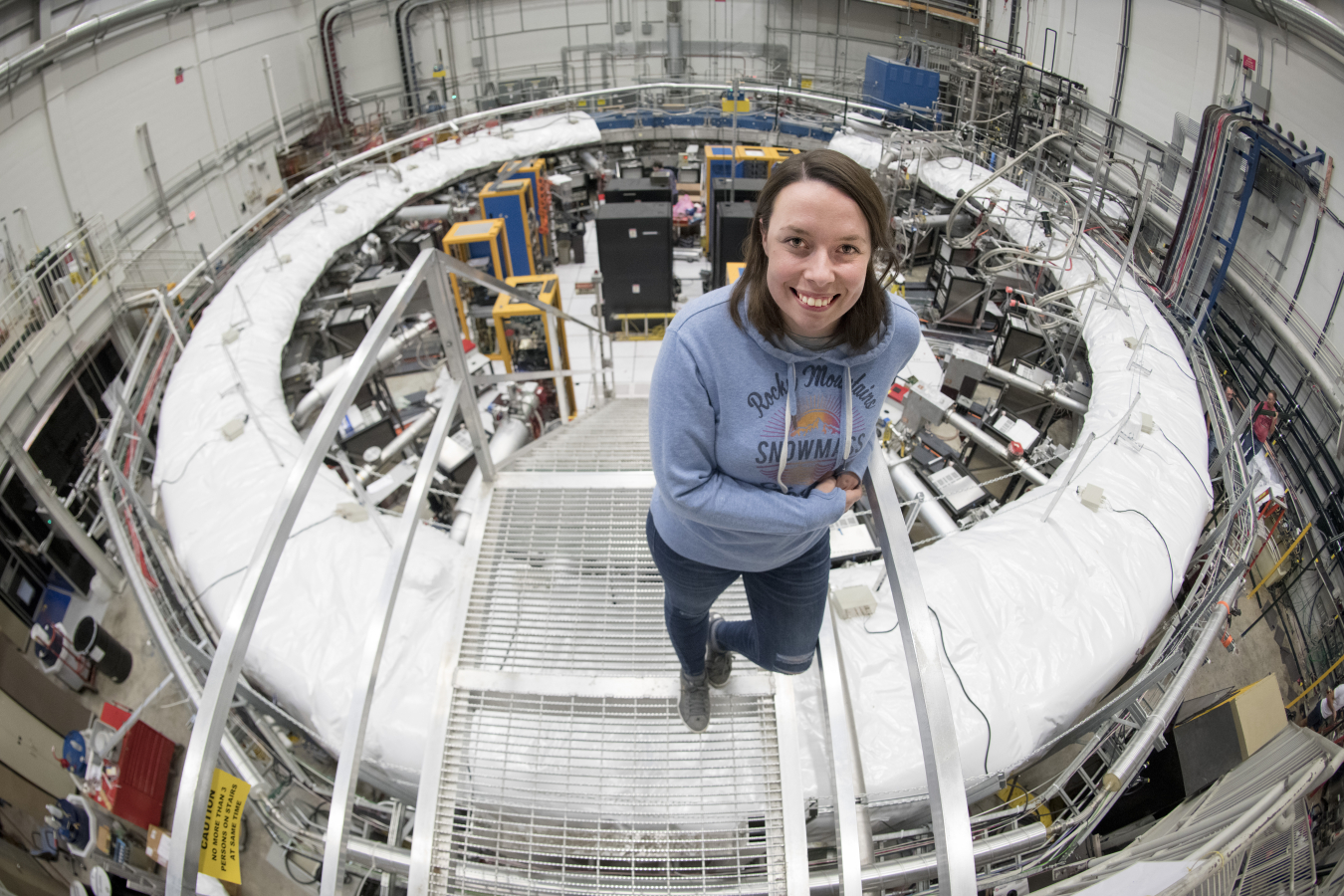Learn why Dr. Saskia Charity loves her job as a scientist at Fermilab.
May 9, 2019
Dr. Saskia Charity is a scientist at Fermilab. After completing her undergraduate degree in physics with philosophy at the University of York in England, Saskia went to the University of Liverpool to get her Ph.D. There, she joined the Muon g-2 group at Fermilab. This gave her the chance to come to Fermilab for a year to work on the development, testing and installation of the straw tracking detectors. When it was time for Dr. Charity to submit her thesis, the experiment was just getting going, and it was a very exciting time — so she chose to stay with the Muon g-2 experiment for a few more years and joined Fermilab as a postdoctoral research Associate.
What inspired you to work in STEM?
My drive to work in STEM increases the longer I am involved in it. I chose physics at university because I enjoyed the way that getting to the answer was just like solving a puzzle - you start with a set of puzzling information and get to the answer following logical steps and maths. I soon learned that experimental research is not always quite so straightforward. The puzzles can be more like “how do I efficiently thread wires that are 1/4 the width of a human hair down holes that are the width of a hair, hundreds of times?” or “how can I detect and prevent sparks in a 60,000-volt system?”. One thing I’ve learned is that no matter how ‘untidy’ the problem you’re trying to solve, the same problem-solving skills can be used to approach it. Research always exposes you to challenges where you think “I have got no idea how to start here!”... but it’s really satisfying when you realize that if you approach practical problems the same way you approach maths problems, you’ll get there eventually.
What excites you about your work at the Energy Department?
Working at Fermilab is always exciting, and no two days are ever the same. The first time I visited the lab I was amazed at how many people are working here, from all over the world, on very varied and complicated things — but with the shared goal of furthering human understanding of the universe we inhabit. I love that the problems facing people trying to get a new experiment up and running are brand new to everyone, even if they are an expert who has worked in the field for decades. It takes everyone working together to get an experiment to run — the fresh ideas of a new summer student can be just as important as the insight of a world-renowned system expert, and that is something I’ve found is really valued by everyone here at Fermilab and is what makes the job so fun.
How can our country engage more women, girls, and other underrepresented groups in STEM?
It's important to show people that the ‘traditional’ image of a cartoon scientist is increasingly not the norm, and that you can go to work and have a great time with people you can identify with and relate to. I remember when I was applying for physics programs, people I knew were surprised, not because they thought I couldn’t do it, but because they thought I would be stuck in a boring office or lab where I wouldn’t have any fun or meet anyone ‘like me'. The reality is that I’ve had the chance to travel to different countries and make great friends from a wide range of countries, ages and backgrounds — and I’m having the best time! It’s also important that experiments and organizations communicate to the public the efforts they are making to allow people from underrepresented backgrounds to meet professionally and build networks.
Do you have tips you'd recommend for someone looking to enter your field of work?
Talk to people, and go and see things! When I was applying for university, the idea of emailing a professor just to ask casually what research they did in their group, and could they let me know if there were any opportunities for lab tours, absolutely terrified me! But now that I work with professors and scientists every day, I know that they tend to be lovely people who love nothing better than to talk about their work. Even after I got to university, I only realized when I came to think about grad school just how many exciting projects were taking place just a couple of doors down from my usual lecture theatre. Most labs and departments will have regular opportunities for tours, or summer projects, so you can see first-hand some of the projects you could work on. If you can’t attend a tour, just send an email and see if you can ask someone to explain their research and what they do every day. People are busy, but I don’t think I know anyone who wouldn’t love to hear from someone interested.
When you have free time, what are your hobbies?
I love traveling and exploring new places. I’m trying to make the most of living so close to Chicago, so I enjoy going into the city, walking around and finding nice places to hang out (in the summer!). I like watching sports — usually soccer, but since I moved to the United States, I love going to watch baseball and trying to get on the big TV.
Learn more about our programs & resources for women and girls in STEM at /women

